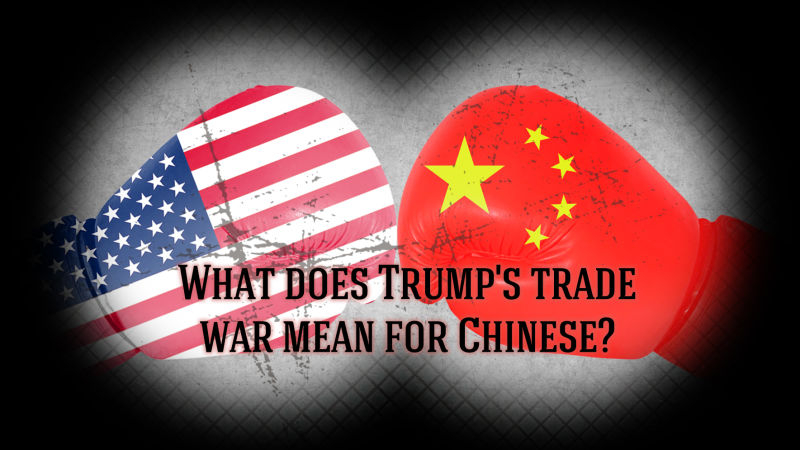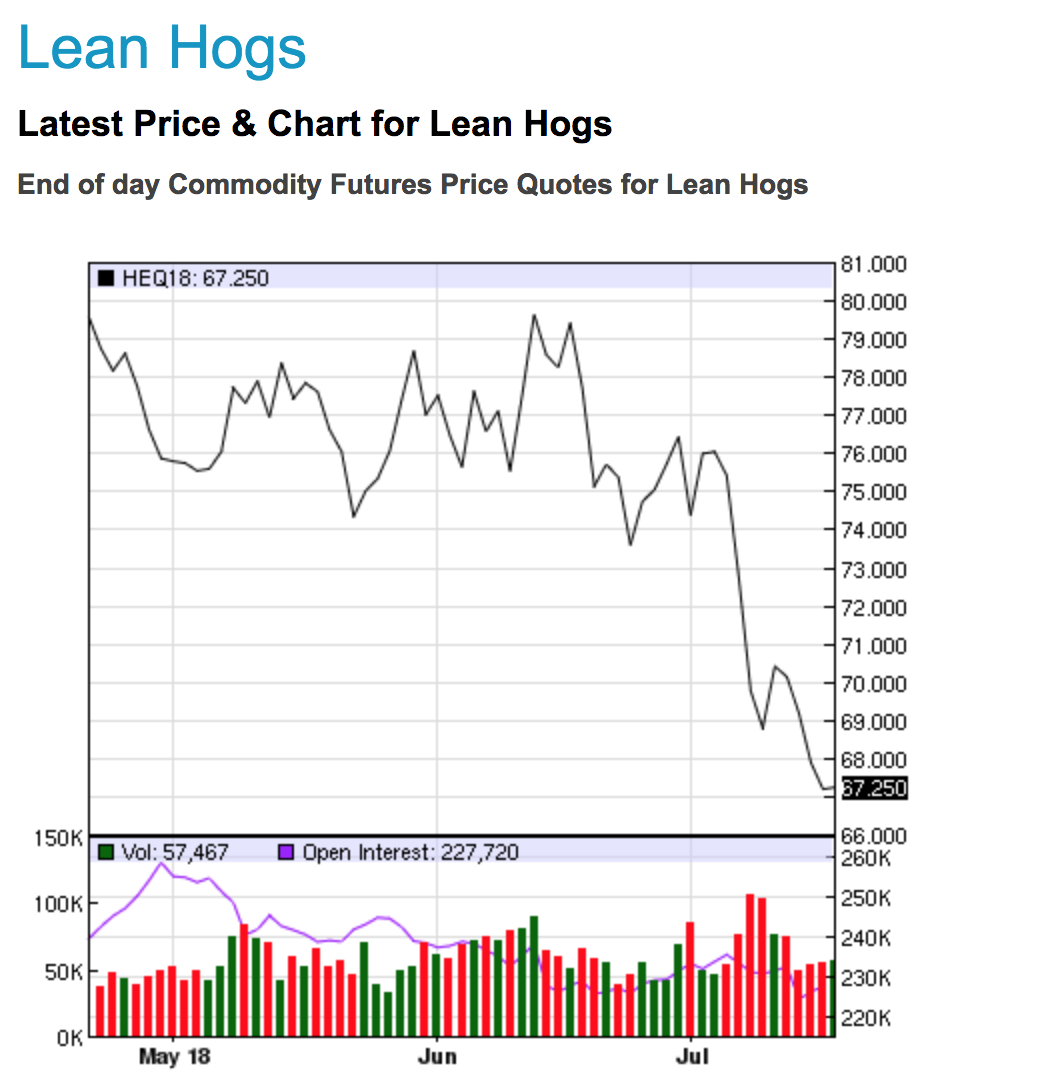
China
07:56, 25-Jul-2018
Voxpop: What does Trump's trade war mean for Chinese?
Updated
07:32, 28-Jul-2018
CGTN Zang Shijie, Wu Chutian
02:51

The world is more interconnected than ever before; few goods are the product of a single nation. Consumers from all around the world benefit from and are reliant on international brands.
However, the US, once a champion of globalization and trade liberalization, now threatens to undermine the world trade order – the very system which has led to global prosperity and stability.
The Trump "trade war" will have negative consequences across the world, with businesses, consumers and workers in the firing line.
So what does a US-China trade war mean for Chinese people? How are businesses and consumers affected? CGTN Digital took to the streets of Beijing to ask people how they feel about the trade dispute.
The US government imposed 25 percent tariffs on 34 billion US dollars’ worth of Chinese imports on July 6, 2018, and has threatened to impose charges on all 500 billion US dollars of imported goods from China.
China has imposed retaliatory tariffs and complained to the World Trade Organization about the US behavior.
CGTN Digital interviewed people from all walks of life and regions to discover their feelings about the trade dispute: they shared a common sense of concern.
Mr. Chen, manager of an American BBQ restaurant in Beijing, said that a supplier who provides pork, beef and alcohol told him a price rise is around the corner.
"We have ordered and stored more in case of the price rise, but still look forward to seeing liberalized trade between the two nations," Chen added.
Tariffs on pork are also hitting US producers, as Chinese buyers look to other suppliers for pig parts. China will likely turn to Europe or Chile, according to Ken Maschhoff, chairman of The Maschhoffs, the largest family-owned US pork producer warned. This has seen pork prices in the US plummet, a devastating situation for the hog industry in the US.

US lean hog prices/ Screenshot from nasdaq.com
US lean hog prices/ Screenshot from nasdaq.com
According to a survey by the American Chamber of Commerce in Shanghai, most US businesses operating in China oppose the US tariffs. Almost 69 percent of the 434 respondents to the annual China Business Climate Survey opposed tariffs, while just 8.5 percent backed them.
Mr. Sui, manager of a steakhouse in Beijing, said that if there will be a price rise on the menu, they need to consider what food to buy. "To sell or not to sell, we have to think of consumers’ demands," Sui added.
Merchants at a market in Beijing where most goods are imported from foreign markets said that their purchase channels for US products are unstable recently, and they have decided to cut down their purchases of US products because of the price rise and the unstable supply.

"I wish there was no protecionism in trade."/ CGTN Photo
"I wish there was no protecionism in trade."/ CGTN Photo

"Every nation wants to protect its own interests."/CGTN Photo
"Every nation wants to protect its own interests."/CGTN Photo

"Free trade is the best thing for everyong." /CGTN Photo
"Free trade is the best thing for everyong." /CGTN Photo

"Many Chinese products are rather popular these days." /CGTN Photo
"Many Chinese products are rather popular these days." /CGTN Photo

"I support China." /CGTN Photo
"I support China." /CGTN Photo
And while there are concerns, a 20-something female consumer told CGTN that although young people take foreign branded products for granted, much progress has been made by Chinese companies.
Chinese consumers have noticed that mobile devices produced by Huawei and Xiaomi (both are Chinese international enterprises in ICT infrastructure and smart devices) have growing reputations worldwide. "If the products we use that are imported from the US rise in price in the future, I think we can have domestic replacements," she added.
A UK graduate who has stayed in China for six years said globalization is irreversible. "We cannot imagine one day without ‘Made in China’ products back in the UK."
What could a US-China trade war mean for you?

SITEMAP
Copyright © 2018 CGTN. Beijing ICP prepared NO.16065310-3
Copyright © 2018 CGTN. Beijing ICP prepared NO.16065310-3